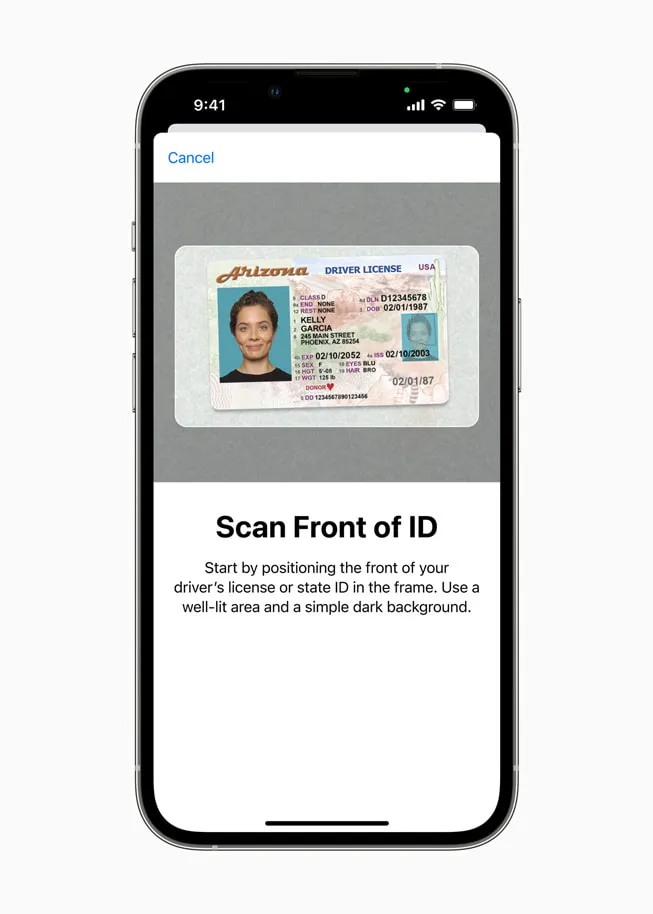CUPERTINO, Calif. — Apple Inc. has announced plans to expand its virtual driver’s license feature to more U.S. states, bringing the total number of participating states to 13.

The feature, which allows users to store a digital copy of their state ID or driver’s license in the Apple Wallet app on iPhone and Apple Watch, is currently available in five states: Arizona, Colorado, Georgia, Maryland, and Ohio. California is pending implementation, which would bring the total to six.

Apple has identified seven additional states that are preparing to support the feature:
– Connecticut
– Hawaii
– Iowa
– Kentucky
– Mississippi
– Oklahoma
– Utah
The technology giant first announced the feature in 2021, with Arizona becoming the first state to offer support in March 2022.
To use the feature, iPhone users must update their devices to the latest version of iOS and add their ID to the Apple Wallet app by scanning their physical ID. The state authority issuing the ID receives only the information necessary for approval.

Apple emphasizes the privacy and security measures in place for the feature. “A user’s ID information is encrypted and stored only on their device, so others, including Apple, cannot access it unless a user chooses to present it,” the company stated in a press release.
When presenting a digital ID, users must authorize the presentation with Face ID or Touch ID. Apple notes that users won’t need to unlock, show, or hand over their device to present their ID.
The virtual ID can be used to verify age when purchasing restricted products and for identification at select Transportation Security Administration (TSA) security checkpoints.

As states continue to adopt this technology, questions remain about widespread acceptance and potential legal implications. State authorities and federal agencies are working to ensure the digital IDs meet security standards and legal requirements.
The timeline for implementation in the newly announced states has not been specified. Apple continues to work with state governments to expand the feature’s availability across the United States.



